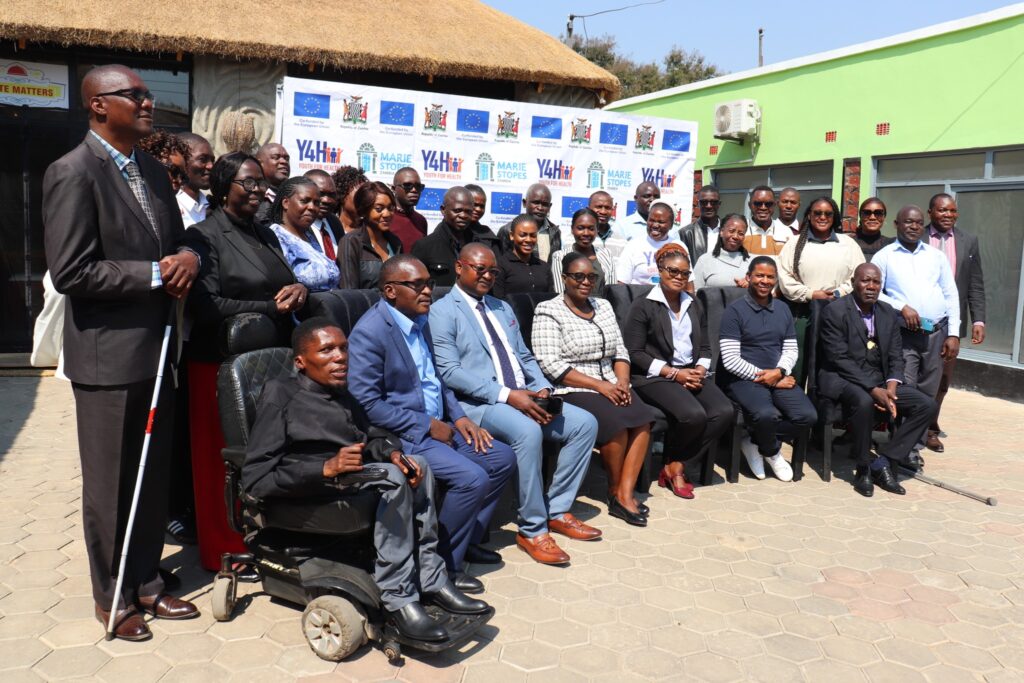For many persons with disabilities, barriers to healthcare remain deeply entrenched, from inaccessible buildings to discriminatory attitudes.
A new Disability Inclusive Service Site Assessment Tool, currently being validated in Kabwe, is set to change that. Developed under the leadership of the Ministry of Health, with support from Marie Stopes Zambia and in collaboration with stakeholders such as the ZAPD, the tool is designed to help health facilities identify and address the gaps that hinder equitable service provision.
The tool goes beyond basic checklists. It provides a comprehensive framework to assess whether health services are accessible, respectful, and responsive to the diverse needs of persons with disabilities.
It covers areas such as infrastructure, client flow, communication, counselling, and health promotion, ensuring that inclusion is built into every stage of service delivery.
Speaking during the official opening of the validation workshop, Mr. Frankson Musukwa, Director General of ZAPD, emphasized the urgency and value of the tool.
“This tool is not just a checklist,” he said. “It is a mechanism to hold ourselves accountable to the principles of accessibility, dignity, and equity. It reflects a broader vision: a health system where persons with disabilities are not an afterthought, but a priority.”
Mr. Musukwa commended the Ministry of Health and Marie Stopes Zambia for their visionary leadership in spearheading the development of the tool.
He noted that the initiative is a powerful affirmation of Zambia’s commitment to leaving no one behind in the journey toward universal health coverage.
Also speaking at the event, Marie Stopes Zambia Operations Director Inonge Wina reaffirmed the organization’s commitment to ensuring disability inclusion across all its operations.
“Disability should not be treated as a standalone project but as an integral part of routine programming,” she said.
Ms. Wina added that Marie Stopes has taken steps to ensure disability is embedded in both budgeting and program design and expressed optimism about the tool’s growing attention at government level.
Meanwhile, Director of the Nursing Unit Daphen Shamambo called on participants to take the tool beyond the validation meeting and become ambassadors of change in their respective spaces.
“Let’s go out there and champion inclusion using this tool,” she said, urging health professionals to take the lead in fostering inclusive environments.
Ms. Shamambo also appealed to Marie Stopes Zambia to consider securing funding for training health workers in basic sign language to help bridge communication barriers.
In closing, Mr. Musukwa reaffirmed ZAPD’s commitment to supporting implementation, capacity building, and ongoing monitoring of the tool.
“Together, we can build a health system, and indeed a country, that is inclusive, just, and responsive to the needs of all its people.”

